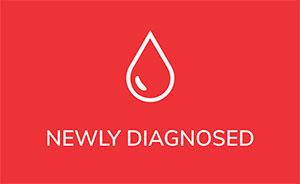Dr. Adrian Wiestner of the National Institutes of Health has been researching the immune system in chronic lymphocytic leukemia for many years.
We know that infections and second cancers are a major concern for all CLL patients as our immune surveillance is compromised leading to more serious infections and a higher rate of other cancers, especially skin cancers.
We also know that old school chemo-immunotherapy such as FCR (fludarabine, cyclophosphamide, and rituximab) make the situation worse and increase the risk of infections and new cancers.
This is particularly important as fewer and fewer of us are dying of our chronic lymphocytic leukemia, but we CLL patients continue to die from complications due to our lower immunity.
Our immune system is complex. One way to think about it is that there is a liquid or humeral component that includes antibodies or immunoglobulins and there is a cellular component that includes various types of white blood cells including T lymphocytes. In CLL, T cells often have an “exhausted” profile, which as the name suggests, renders them pretty inept in fighting the CLL, other cancers, or infections.
At ASH 2018, Dr. Wiestner and I discussed the latest we know about nudging our impaired immune system in the right direction.
Takeaways:
- Essentially all CLL patients have impaired T cell function and some degree of impaired overall immune function.
- Many, but not all of us, have low levels of the important immunoglobulins (IGA, IGG, and IGM) that make up our antibodies.
- On ibrutinib, some immune function can improve:
- There is a lower incidence of infections after patients have been on ibrutinib for over a year.
- The low blood level of one critical immunoglobulin, IGA, the protein that protects mucous membranes in the respiratory and gastro-intestinal tract, increases in patients on ibrutinib.
- T cell function also improves on ibrutinib. As an aside, this is why there is so much enthusiasm for using ibrutinib in combination with CAR-T therapy to improve the function of the genetically re-engineered T cells with the hope of leading to better outcomes.
- There are similar results with the newer BTK inhibitor, acalabrutinib:
- IGA levels also improve.
- Infections become less common.
- T cell function has not yet been studied.
- 30% of CLL patients on ibrutinib respond to the flu vaccine, only about ½ the rate of the non-CLL population, but as Dr. Wiestner says, it is not zero.
- The NIH is doing two vaccine trials with the new killed shingles vaccine and the hepatitis B vaccine in CLL patients. See below for links to enroll.
Conclusions:
Restoring the immune system is the critical second step to our long-term survival. It comes right after controlling our CLL.
Most prior CLL treatments, especially those that included chemo, could further damage the bone marrow and lower the population of all types of white blood cells that form the bulwark of our immune system.
The newer targeted BTK inhibitors such as ibrutinib and acalabrutinib don’t suppress the bone marrow and may actually improve some aspects of the immune system.
The story is not black and white. Although the number of infections fall after being on these meds for a year or more, these trials: Incidence and Type of Opportunistic Infections during Ibrutinib Treatment at a Single Academic Center and Serious Infections in Patients Receiving Ibrutinib for Treatment of Lymphoid Cancer show infections can still be a problem.
If we can both control the chronic lymphocytic leukemia and prevent infections and second cancers, we are well on our way to a normal life span.
Here is my ASH 2018 interview with Dr. Wiestner:
Here is Dr. Wiestner’s ASH 2018 Abstract: Partial Reconstitution of Humoral and Cellular Immunity in Patients with Chronic Lymphocytic Leukemia Treated with Acalabrutinib.
Here is an earlier 2015 NIH article titled: Partial reconstitution of humoral immunity and fewer infections in patients with chronic lymphocytic leukemia treated with ibrutinib.
Here is a related article: Ibrutinib treatment improves T cell number and function in CLL patients.
Finally, here are links to the two vaccine trials. Remember that the NIH covers most of the expenses related to all their trials. Our tax dollars are being put to good use. You can get the expensive shots for free and at the same time help our understanding of CLL.
And:
Finally, here is a link to my interview with Dr. Neil Kay on a different approach to strengthening our immune system.
This is an important topic and is one of the areas of research the CLL Society hopes to fund with major bench science research. If you can help, please consider a donation.
Thanks.
Stay strong. We are all in this together.
Brian Koffman MDCM (retired)

















